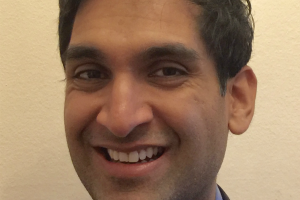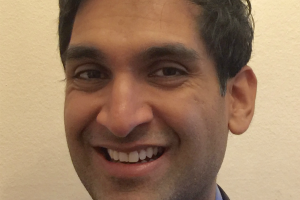
A progress report of the Healthier You: NHS Diabetes Prevention Programme (NHS DPP) has just been published in Diabetic Medicine, a peer-reviewed academic journal.
It’s very pleasing to see that referrals are already exceeding targets and uptake nationally is better than expected. Such a programme is certainly much needed; with the prevalence of diabetes rising nationally (and estimated to continue), costs increasing and the constraint of ever-more limited health resources, focussing on prevention of the condition and empowering people to improve their own health is absolutely essential.
Until recently, managing people with non-diabetic hyperglycaemia (previously called pre-diabetes) felt mildly frustrating at times. Without much to offer them, we often watched patients progressively, year on year, step closer and closer to the diagnostic threshold for diabetes. We saw their steadily increasing HbA1c and had variations of the same conversation about losing weight, getting active and improving their diet. Sometimes it would work, but often only for a while.
Ideally we’d have liked to see them frequently, monitor their weight loss, share information about the condition (and how to avoid it) at regular intervals and motivate them effectively to generate real behaviour change. But the realities and pressures of general practice mean that, even using other members of the primary care team, such an approach has simply not been feasible.
Even local GPs concerned about developing diabetes have asked about going on the programme
Here’s where the NHS DPP comes in. With at least thirteen sessions over a minimum of nine months, it empowers people to lose weight, get active and improve their diet, all underpinned by evidence-based techniques for lasting behaviour change. And rather than being an additional burden on primary care, it should lead to less work. Yes, it will help people avoid diabetes (and obesity and probably hypertension, coronary heart disease, strokes and some cancers) but more immediately, getting people active and improving their own health is a great way to make them feel happier. Anecdotally, happy people don’t seem to go to the doctor as often.
We don’t even need to go out of our way to find people for the programme. For years, we’ve had a ready-made process for detecting non-diabetic hyperglycaemia in the form of NHS Health Checks. Now at least, as has always been the case for hypertension or high cardiovascular risk identified through Health Checks, we have a high quality and effective intervention for the people we identify at high risk of diabetes, but with negligible side effects.
The clear commitment of NHS England, Public Health England and Diabetes UK to investment in prevention is very much welcome. The final roll out of the programme will happen in the 18/19 financial year, meaning England will be the first country in the world to have a nationwide prevention programme. We should be immensely proud of this.
Of course, there is still much work to be done. As well as the positives, the progress report also notes the variation in referral rates and uptake between different areas. Although some of this may be down to demographics, mobilisation and rurality, it will also relate to local engagement. Going forward, we will need to further identify barriers and work hard to address these so our population can equitably access the benefits of the programme.
The reception to the NHS DPP in Luton has been phenomenal. We have seen over 2% of our adult population referred to the programme in the last six months (over 3,000 people). Positive reports of the programme seem to be spreading; rather than waiting to be contacted, some high-risk patients in Luton are now actively requesting referral.
I’ve seen patients who have previously struggled with lifestyle change monitoring their every move with a pedometer. Even local GPs concerned about developing diabetes have asked about going on the programme. It’s still early days but the feedback about the NHS DPP, from healthcare professionals and patients alike, has been universally positive. At a basic level, it’s extremely empowering as a clinician to have an effective service to which to refer your patients and witness real change, rather than watching them slowly progress to a potentially devastating life-long condition.
On the back of the good news from the first progress report, I hope we can all do even more to seize this opportunity. The NHS DPP benefits patients, clinicians and, in all likelihood, supports the long term sustainability of our health system; we in Luton are certainly doing our very best to make the most of it.
Dr Chirag Bakhai is a GP in Luton and a clinical director at Luton CCG; he leads the NHS DPP across the Bedfordshire, Luton and Milton STP and recently joined the NHS Diabetes Programme Directors Group as a primary care representative and clinical advisor

















